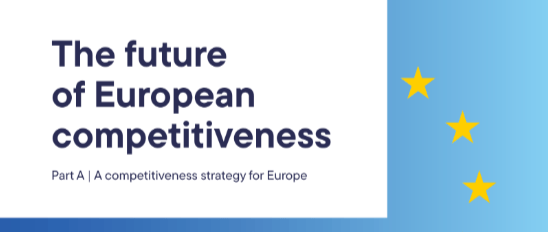A New Roadmap for Europe's Future: Insights from the Draghi Report
Arash Hajikhani
12/10/20241 min read


The recently unveiled Draghi Report, crafted by Mario Draghi—former Italian Prime Minister and ECB President—presents a bold roadmap for the European Union's economic future. Tasked by European Commission President Ursula von der Leyen, Draghi's 400-page blueprint emphasizes innovation, decarbonization, and economic security as pivotal to restoring Europe's competitive edge.
The report, "The Future of European Competitiveness: A Competitiveness Strategy for Europe," highlights the urgent need for the European Union (EU) to enhance its global competitiveness amid slowing productivity growth, demographic challenges, and shifting global dynamics. Here are the key points summarized:
Core Challenges:
Economic Stagnation: Europe faces slower economic growth compared to the US and rising competition from China. This is exacerbated by a decline in productivity growth and a shrinking workforce.
Innovation Gap: Europe lags behind the US and China in advanced technologies, with limited success in commercializing innovation and scaling up new companies.
Energy and Decarbonization: High energy costs and ambitious decarbonization goals pose challenges, while opportunities in clean technologies remain underutilized.
Geopolitical Instabilities: Dependence on external suppliers for critical raw materials and technologies increases vulnerabilities, requiring stronger industrial and trade policies.
Fragmented Single Market: Regulatory burdens and a lack of integration hinder innovation and scaling up businesses across Europe.
Strategic Recommendations:
Close the Innovation Gap:
Develop a Joint Decarbonization and Competitiveness Plan:
Enhance Security and Reduce Dependencies:
Streamline Governance and Improve Coordination:
Address Skills Shortages:
Mobilize Investment:
Conclusion:
The report underscores the need for bold, unified action to ensure Europe remains competitive on the global stage. By prioritizing innovation, decarbonization, and security while fostering social inclusion, Europe can navigate current challenges and achieve sustainable growth.
Arash Hajikhani, PhD
Showcasing my academic profile and projects and blogpost series
contact
Blogpost Subscription
© 2024. All rights reserved.
